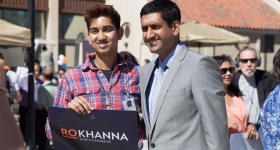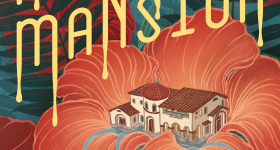INSIDE A WAREHOUSE on a former Navy base, Barry Luck unlocks the chain-link gate of the Bike Shop at Alameda Collaborative, revealing a tidy workspace dotted with carpets and bikes mounted on stands in various stages of repair.
"I think [bikes] are the most practical, efficient form of transportation ever created," says Luck, program director for Cycles of Change, a 9-year-old bicycle education program in Northern California's East Bay that promotes bicycling as a sustainable form of transportation.
Alameda Point Collaborative, a supportive housing community for formerly homeless families, is one of the sites where Cycles of Change operates. The Bike Shop serves as a community business that trains residents in bicycle repair and mentors local kids in bike mechanics, environmental stewardship and safe riding practices. It is Luck's newest project.
As Luck secures the gate, one of the adult residents walks up and nods in greeting. She stretches to place her bag high on top of a metal supply cabinet and grabs a wrench, planting herself in front of a mounted bike. A girl in a pink T-shirt soon joins her, and they both puzzle over how to loosen a rusted crank. They take turns, huffing as it refuses to give.
"By having any sort of mentorship where it's a voluntary program, where kids realize they can get something that they wanta bike-but they have to earn it, is a new model for them," Luck says as he watches the pair wrestling with the crank. "They're always being told to do things: 'You have to clean your room. You have to do your homework. You have to go to school.' It's very rare for young people to hear, 'Here's an opportunity.' That's really powerful, allowing people to see possibility so they can jump in and say, 'I want this.'"
Luck smiles easily, light reflecting off wire frame glasses, as he describes the heart of Cycles' philosophy. "Cycles is composed of people who care deeply about people of all ages. The relationships that develop [through our programs] start as a connection around the love of bicycles. But the real accomplishment is the interpersonal relationships which develop from this shared love. That is one of the beautiful things about bicycles. If you are a rider, then you are automatically a part of a worldwide community of people who can connect through this wonderful form of transportation, no matter what type of bike you ride, or who you are."
Luck looks over the Bike Shop's workspace, which is now filled to capacity, including a toddler who waves a huge bouquet of tiger lilies like a wand. "We're like a stream that constantly brings in new types of water. It's a never-ending growth process with youth and adults."
One of the young people who has partnered with Luck is San Saephan, whom Luck calls "The One." The Matrix reference aside, Luck says Saephan is a leader.
Saephan grew up in Oakland within the tightly knit Iu Mien community that blossomed in the area after the Vietnam War forced thousands to flee Southeast Asia. He wasn't very interested in bikes until he got involved with Cycles in the sixth grade. Luck remembers him as "a grounded, peaceful, insightful person" who went out of his way to bring his friends into the program. After some time as an intern, Saephan began leading youth groups on organized rides through the streets of Oakland. Over the years, Saephan has seen neighborhoods respond positively.
Saephan, 19, continues to work with Cycles and attends college at California State University, East Bay. The connection between Luck and Saephan is clear as the two joke together in front of the Bike Shop's gate.
"Since Cycles has been here for so long, everywhere we ride, someone has seen us before or someone has a son or daughter in the program," Saephan says. "So it becomes a safe community."
Building a safe and empowered community is exactly what Luck's work is about. "I'd like to help people develop their own abilities to do more than just survive this crazy system, and to one day engage in changing it for the better."
Take a spin around the site: www.cyclesofchange.org.
Mahru Elahi is an artist-in-residence with WritersCorps, a project of the San Francisco Arts Commission which places professional writers in community settings to teach creative writing to youth. When not teaching or writing, she rides her clunky bike all over San Francisco and aims for potholes.









Comments